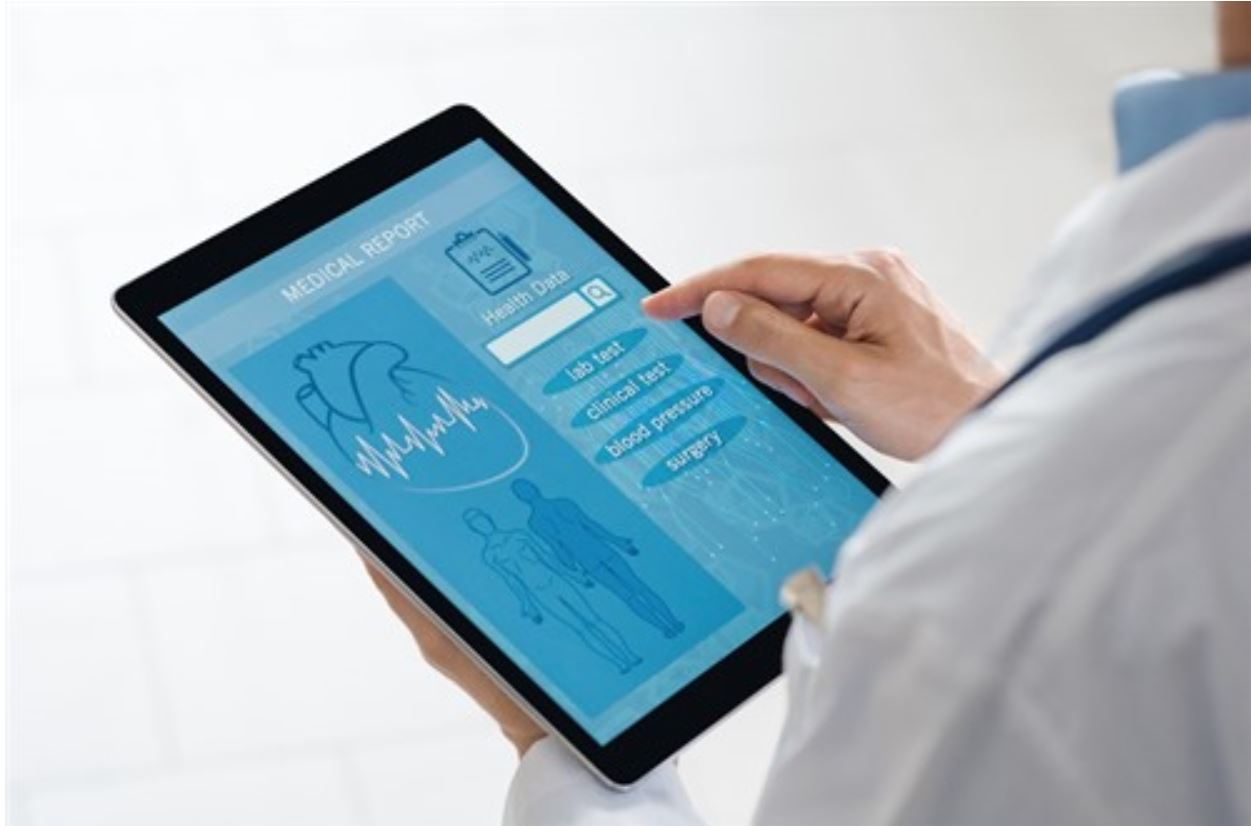The Dorset Care Record is a good example of how shared care records become more effective as they mature. It has just gone live with a clinical maternity pathway for practitioners and will be considering implementing Orion Health Medicines next year. However, communications and engagement manager Tony McDougal told a recent King’s Fund event that that there is more to do.
Large-scale digital care record projects can take time to find their feet. Yet once they move from ‘seeing to doing’ – from giving clinicians a ‘view’ of information held in different IT systems to using it to actively improve care – they can take off rapidly.
The Dorset Care Record is just at that point. Having spent two years integrating hospital and GP information using the Orion Health Amadeus open platform, it has just gone live with its first pathway: a clinical maternity pathway that will support Dorset’s pioneering Better Births project.
Tony McDougal, communications and engagement manager, outlined the project’s evolution at a breakfast session at the King’s Fund’s annual conference in London, and its next steps, which will include a single medication record for the whole of Wessex and a citizen portal.
Six key takeaways:
One, setting: Dorset covers an area of 2,600 square miles, inland from the famous Jurassic coast. “It is a beautiful area,” McDougal told his London audience, “but it has its issues.” Tourist traffic can make it hard to travel between the three big towns of Bournemouth, Christchurch and Poole, and the area’s resident population is ageing.
To address its challenges, the area is working on an Our Dorset programme to reconfigure hospital services, establish imaging and pathology networks, and to strengthen community and primary care to move care closer to home. The Dorset Care Record is integral to this work.
“We are very much part of the key digital offer to the Dorset Integrated Care System,” McDougal explained. “Having a shared care record underpins every conversation that we have about transforming care.”
Two, from launch to 1,000 users: The Dorset Care Record is led by Dorset County Council, working in partnership with NHS Dorset Clinical Commissioning Group and local providers. It is underpinned by a data sharing agreement, the Dorset Information Sharing Charter (DISC), and built on the Orion Health Amadeus open platform.
The record went live in February 2018, and as McDougal gave his presentation, the information available included: demographics, encounters, alerts and radiology reports from the three acute trusts in the area, pathology and allergy reports from Dorset County Hospital, and the full GP record from every practice.
“We have around 1,000 users, and they accessed 2,500 records in November,” McDougal said, adding that both figures would grow when single sign-on is rolled out from next month, and more hospital, community and social care feeds are added this winter. “We have 26 out of around 88 elements of the contract completed, and 7,000 licenses available, so there is plenty more to do.”
Three, working across Wessex: Dorset is next to Hampshire and the Isle of Wight, which has one of the most mature shared care records in the country, the Care and Health Information Exchange, with 25 organisations involved and 11,000 users. “It has been working with another tech provider, but the good news for us, and for Orion Health, is that from next April Orion Health will take over that contract,” McDougal said.
The two counties are already working together on the Wessex Local Health and Care Record Exemplar (LHCRE), one of five pilot NHS LHCRE projects working on platforms for population health management; or the use of data to develop interventions that will keep patients out of hospital and help them to look after their own health and care.
“The Wessex LHCRE will enable clinicians and users to communicate about a patient, wherever their record is held, and it will enable us to build a population health management platform,” McDougal said. “That will help with planning and provide support for services that will help us to meet our challenges in the future.”
Four, the maternity pathway: Meanwhile, the Dorset Care Record has just gone live with its first clinical pathway, for maternity. It is designed to support the new, postnatal care pathway developed as part of the NHS England Maternity Transformation or Better Births programme, for which the Dorset Local Maternity System is an early adopter.
The pathway uses Care Pathways from Orion Health’s Coordinate solution to enable professionals to share information about a new mother that is recorded in the IT systems used by midwives, health visitors and others. That includes: the mother’s social situation, smoking status, issues and referrals, and records discussions around the “red book.”
“Transferring information from midwives to health visitors is essential as mums move from pregnancy into motherhood,” McDougal told the King’s Fund. “We have had forms to record the information they need for the past year, but they are on paper. Making them electronic makes them available to clinicians who needs them to improve care for the family.”
Five, next steps, medicines: With the maternity pathway live, Dorset is looking to develop more pathways. “There is a huge list,” McDougal told his audience, illustrating how successful shared care records create their own demand.
“We have people coming to us all the time saying: ‘Can we do this or this’; and we have to say: ‘Let’s just get this in place first and go from there’.” The Dorset Care Record has other, exciting plans for next year. It will be developing a citizen portal.
And, in a major piece of work led by Wessex Care Records, it will be using Orion Health Medicines to create a One Medication Record for the whole of Wessex. “The medication record will be a central repository for medicines information, available to clinicians through the Dorset Care Record and CHIE,” McDougal said. “It will make working lives easier and make sure that patients get safer treatment, by collating all the medicines information in GP, hospital and other systems in one place.”
Six, why it all matters: The Dorset Care Record has worked hard to communicate with local people about the service, through a website, social media and traditional leaflets. It has also worked hard to communicate with clinicians about the benefits of sharing information.
In his presentation, McDougal was able to share many quotes from local professionals about how the Dorset Care Record is “wonderfully simple to use” (Dr Andrew Polkinghorn, a senior GP in Verwood) a great way to “get the latest information from primary care about my patients” (Dr Matt Thomas, a consultant geriatrician at Poole Hospital) and a time saver, because it avoids “making several calls to gather information” (Claire Collett, an occupational therapist at Dorset County Council).
In a recent blog, Ellie Venton, NHS Dorset CCG’s programme lead for maternity transformation/better births system integration, said she was confident the maternity pathway would have a similar impact.
“Teams can view their women’s records and will easily be able to see if a form is outstanding and can follow this up with the relevant professional – meaning fewer missed contacts and a better care pathway for mum, baby and the family.”
However, McDougal concluded by saying there was more to do. “We should push on with our shared care records,” he emphasised to his audience. “And I will leave you with a final thought. This is an issue of social justice, because it is helping to deliver better care for all, including the poorest, who are often least-well served by our current services.”



